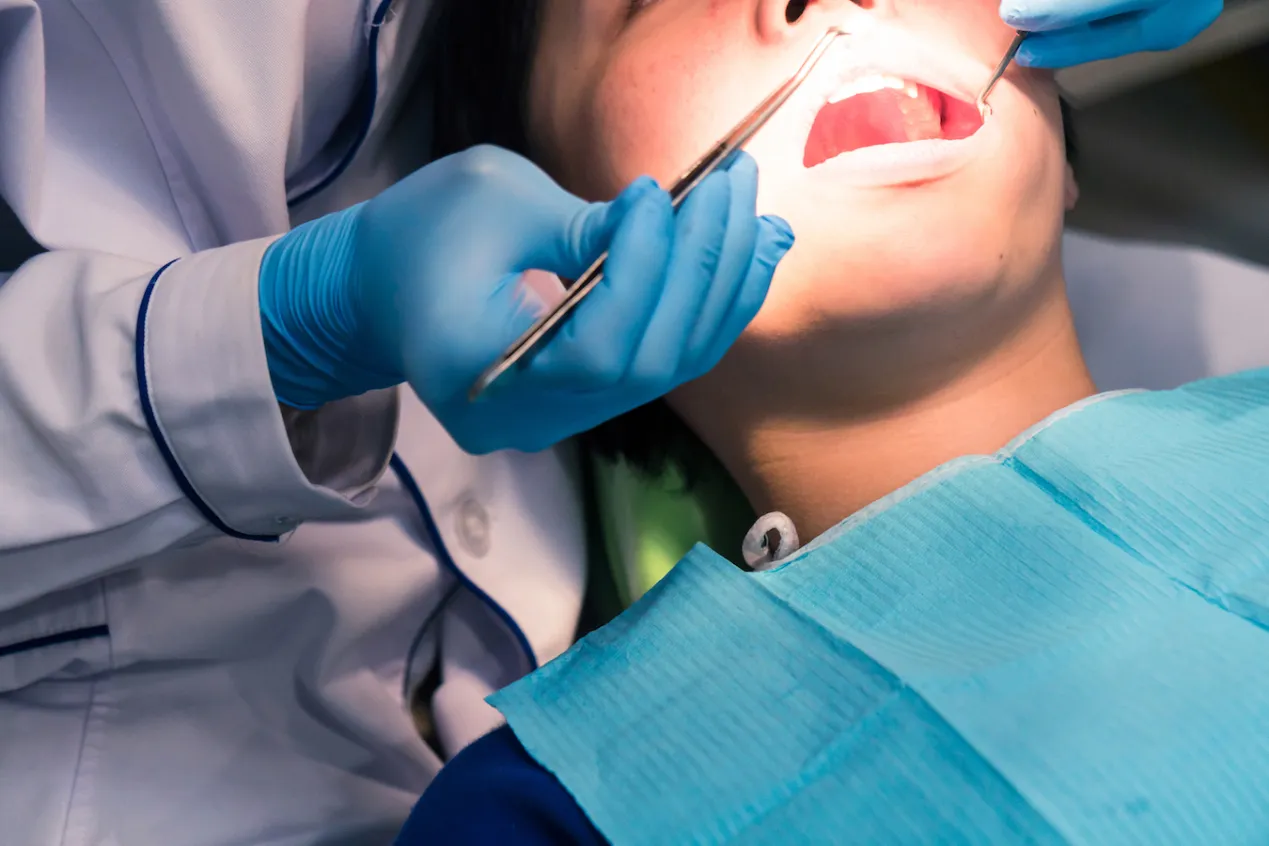Why You Need To Pick a Neighborhood Dentist Eugene for Personalized Treatment
Why You Need To Pick a Neighborhood Dentist Eugene for Personalized Treatment
Blog Article
An Overview to Typical Oral Conditions That Need a Dentist's Treatment
Recognizing the series of dental problems that necessitate expert treatment is critical for keeping optimal oral wellness. Toothaches, as an example, can be symptomatic of severe problems such as dental caries, fractured teeth, or abscesses, each calling for specific treatments like fillings or root canals. Gum illness, from the beginning of gingivitis to more serious periodontitis, highlights the relevance of regular oral check-ups and cleansings. Furthermore, influenced wisdom teeth and jaw disorders can introduce considerable discomfort and issues. Making certain prompt check outs to the dentist can reduce these problems efficiently, but what precisely are the treatments and indications included?
Toothaches
Toothaches are a typical dental problem that can range from light pain to serious pain, typically indicating a hidden issue that requires professional focus. This pain can come from a range of sources, consisting of oral cavities, broken or fractured teeth, and oral abscesses. Each of these conditions presents significant threats if left untreated, possibly causing a lot more serious difficulties.
Oral cavities, likewise understood as caries, are created by the accumulation of plaque that deteriorates tooth enamel, leading to openings or pits in the affected teeth. Abscesses are painful infections at the origin of a tooth or in between the gum and a tooth, normally resulting from extreme decay or untreated tooth cavities.
Effective therapy of toothaches involves resolving the source. This might consist of fillings for tooth cavities, crowns for broken teeth, or origin canals and prescription antibiotics for abscesses. Early treatment by a dental specialist can avoid more degeneration and minimize pain, making sure optimal oral health.
Gum Tissue Disease
Gum illness, a common yet usually ignored oral problem, shows up with swelling and infection of the gum tissues and sustaining tissues. If left untreated, gingivitis can progress to periodontitis, a more serious type characterized by the damage of the supporting bone and connective cells, inevitably leading to tooth loss.
The primary reason for gum disease is bacterial plaque, a sticky, colorless film that continuously forms on teeth. Poor oral hygiene, smoking, genetic predisposition, and certain medical problems, such as diabetic issues, can aggravate the threat of establishing periodontal disease. Routine dental check-ups are important for early detection and management of this problem.
Therapy for gum tissue illness ranges from professional oral cleansing and scaling to advanced procedures like origin planing and periodontal surgical treatment, relying on the intensity. Maintaining excellent oral hygiene methods, consisting of cleaning two times daily, flossing, and utilizing a disinfectant mouth wash, can significantly reduce the threat of gum tissue condition and advertise healthier gum tissues.
Tooth Cavities
Cavities, also called tooth decays, are a common oral condition identified by the damage of tooth enamel due to acid-producing microorganisms in the mouth. These germs thrive on sugars and starches from food and beverages, creating acids that progressively wear down the enamel, causing cavity development.
Early-stage dental caries might disappoint signs, but as they proceed, they can trigger tooth pain, sensitivity to cold or hot, noticeable holes or pits in the teeth, and staining. If left unattended, cavities can penetrate deeper layers of the tooth, possibly causing severe discomfort, infection, and even tooth loss.
Protecting against tooth cavities involves a mix of excellent oral health practices and dietary routines. Normal cleaning with fluoride tooth paste, flossing, and regular oral exams are essential. Dentists may likewise suggest additional preventative actions, such as fluoride therapies and dental sealers, to shield teeth from degeneration.
Treatment for tooth cavities relies on their severity. Minor cavities can be attended to with oral fillings, which recover the tooth's framework. Advanced situations might need crowns or perhaps origin canal therapy if the degeneration has reached the tooth's pulp. Timely intervention by a dental expert is vital to stop difficulties and keep general oral wellness.

Impacted Wisdom Teeth
Influenced wisdom my company teeth are a common oral problem that takes place when the third molars, typically described as wisdom teeth, fail to completely arise or line up correctly within the mouth. This problem often results from inadequate room in the jaw or an uncommon growth angle of the teeth. Impacted knowledge teeth can cause a selection of complications, including discomfort, infection, and damage to adjacent teeth.
When wisdom teeth end up being influenced, they are frequently partially emerged or continue to be entirely below the gum line. This partial eruption can produce a pathway for microorganisms to get in the gum tissues, bring about infections that materialize as swelling, discomfort, and also high temperature. Furthermore, affected wisdom teeth can apply stress on neighboring teeth, possibly creating crowding or changing.
A detailed dental assessment, normally entailing X-rays, is crucial for identifying impacted knowledge teeth. Normal oral examinations are advisable to check the condition and keep oral wellness.
Jaw Conditions
Jaw conditions, collectively referred to as temporomandibular joint (TMJ) conditions, incorporate an array of conditions check over here that influence the visit their website jaw joint and surrounding muscle mass. These conditions can manifest with signs and symptoms such as pain or tenderness in the jaw, trouble chewing, a popping or clicking audio when opening up or shutting the mouth, and even persistent headaches. TMJ conditions can emerge from different factors, consisting of joint inflammation, jaw injury, or habitual behaviors like teeth grinding or jaw clenching.
Diagnosis of TMJ conditions typically entails an extensive analysis by a dental expert, consisting of a health examination of the jaw, dental X-rays, and often progressed imaging strategies like MRI or CT scans to analyze the joint's condition. Treatment choices vary depending on the seriousness of the problem. Non-invasive approaches such as physical treatment, dental splints, and drugs targeted at reducing inflammation and pain are often first-line treatments. In more severe cases, surgical treatments might be needed to deal with structural problems within the joint.
Very early intervention by an oral specialist is important to protect against the progression of TMJ disorders and to keep total dental health and wellness. Patients experiencing persistent jaw pain or dysfunction need to look for prompt examination and therapy.
Conclusion
Toothaches commonly suggest underlying concerns such as cavities, broken teeth, or abscesses, requiring timely treatment. Affected knowledge teeth and jaw disorders additionally require specialist attention to relieve pain and avoid further complications.
Dental dental caries, additionally known as decays, are triggered by the accumulation of plaque that deteriorates tooth enamel, leading to openings or pits in the impacted teeth. Abscesses are uncomfortable infections at the origin of a tooth or in between a tooth and the gum tissue, commonly resulting from serious decay or untreated tooth cavities.

In addition, impacted wisdom teeth can put in pressure on bordering teeth, potentially creating crowding or shifting.
Report this page